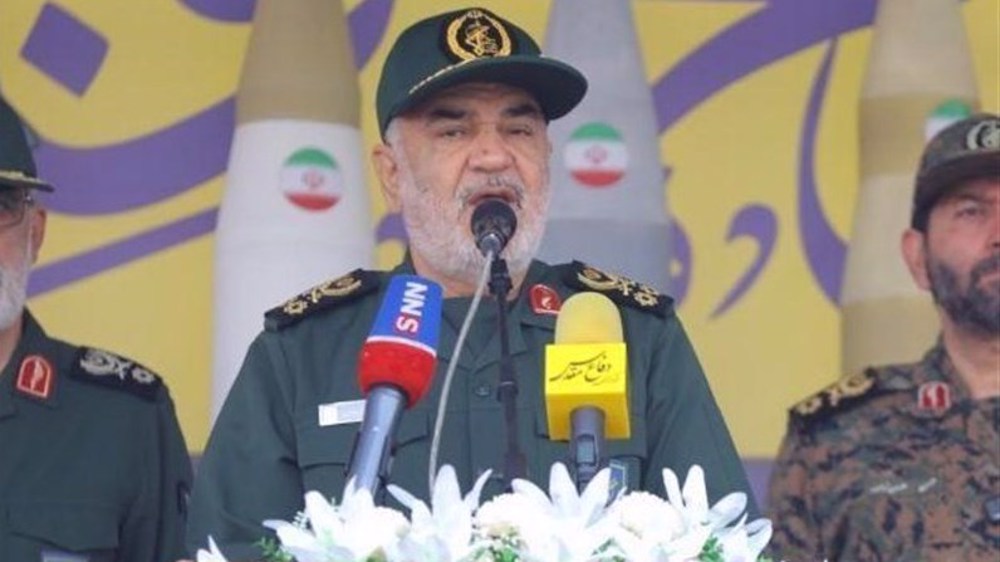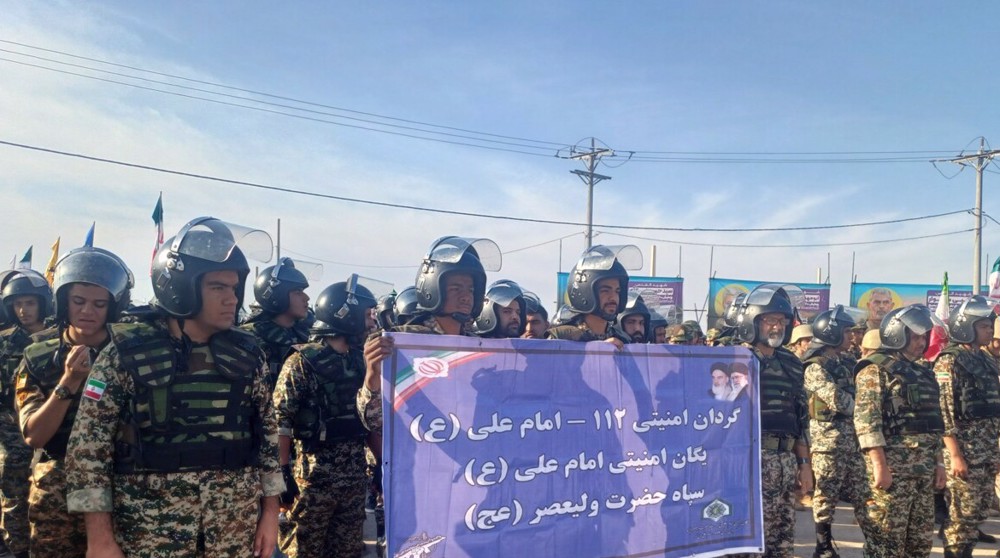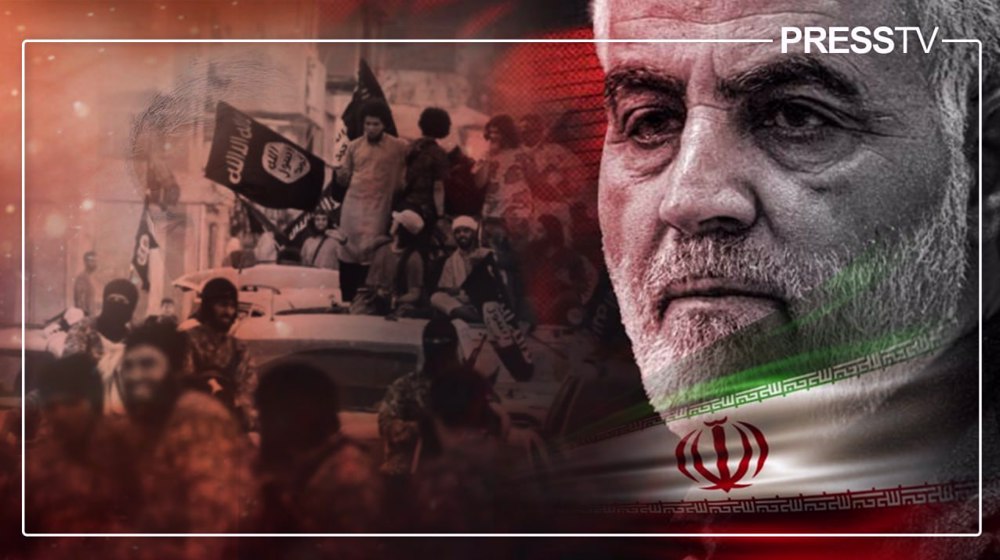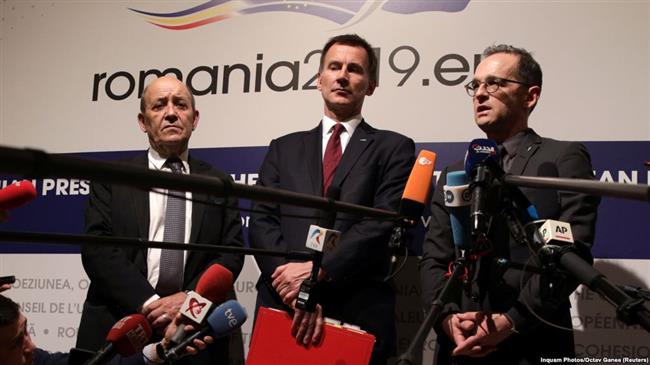Israeli minister warns of Iran escalation fallout for Tel Aviv
Israel's energy minister has warned of serious risks to Israel's security in case tensions between Iran and the United States increase.
The US has recently deployed an aircraft carrier and bombers in the Persian Gulf, with the administration of President Donald Trump’s trying to increase economic pressure on Tehran.
“Things are heating up,” in the Persian Gulf, Yuval Steinitz, a confidant of Israeli Prime Minister Benjamin Netanyahu, told the Ynet news site on Sunday.
“I wouldn’t rule anything out. Iran may fire rockets at Israel,” he said.
Steinitz also claimed that if the standoff between Tehran and Washington escalates, Iran's allies such as Hezbollah resistance movement in Lebanon and the Palestinian Islamic Jihad movement in the Gaza Strip may attack Israel with their rockets.
The US Air Force acknowledged Friday that B-52 bombers ordered by the White House to be deployed to the Persian Gulf to counter unspecified threats from Iran had arrived at a major American air base in Qatar.
On Sunday, the White House said it would send the USS Abraham Lincoln aircraft carrier strike group and the bombers into the Persian Gulf to counter Tehran.
Israeli leaders and pro-Israeli groups in the US are believed to be the driving force behind President Donald Trump's extremely hostile policies toward Iran.
'Israel is within our range'
Ali Motahhari, the deputy speaker of Iranian Parliament, dismissed the US deployments in the Persian Gulf as “psychological warfare,” saying Washington is “not ready for a war, especially when Israel is within our range.”
Motahhari’s remarks echoed those of Major General Hossein Salami, the commander of the Islamic Revolution Guards Corps (IRGC), who said the US is waging “a psychological war” against Iran.
Addressing a parliament session in Tehran, Salami said the deployment of the carrier to the region was part of the American military’s regular rotation schedule, a lawmaker said.
“Commander Salami, with attention to the situation in the region, presented an analysis that the Americans have started a psychological war because the comings and goings of their military is a normal matter,” MP Behrouz Nemati said.
Also on Sunday, a senior commander of IRGC stressed that the US forces stationed in the Persian Gulf “will be hit on the head” if they make a mistaken move.
"An aircraft carrier with at least 40 to 50 fighter jets and 6,000 personnel was a serious threat for us in the past, but is now a target and threats have turned into opportunities," the IRGC's aerospace division Gen. Amir Ali Hajizadeh said.
Another senior IRGC official said the Trump administration does not dare to wage a war on Iran.
Brigadier General Yadollah Javani, a political head of the IRGC, said the aggressive rhetoric the US has adopted against Iran is just part of a mechanism that the American officials have devised in line with their sanctions to make them more practical.
Tensions rose after the US said last month that it would not renew waivers allowing Tehran’s eight largest customers to purchase oil in order to bring Iranian oil exports to zero.
Washington withdrew from the Joint Comprehensive Plan of Action (JCPOA) last year and reimposed unilateral sanctions that had been lifted under the landmark 2015 agreement.
Iran on Wednesday informed the UK, France, China, Russia and Germany -- the remaining five signatories to the deal -- that it was suspending some of its commitments under the deal.
Tehran also gave the three European signatories 60 days to meet their commitments, especially in the banking and oil sectors, and guarantee Iran’s interests in the face of US sanctions.
UN: 2024 deadliest year for aid workers amid genocide in Gaza
Gaza health official warns of hospital shutdowns within 48 hours
Israel kills 5 more paramedics in southern Lebanon: Health ministry
Iran to launch ‘new, advanced’ centrifuges in response to IAEA resolution: AEOI
Yemen fires hypersonic missile at Israeli airbase
VIDEO | New Delhi chokes under toxic smog as air quality remains at hazardous levels
VIDEO | Press TV's news headlines
VIDEO | ICC's arrest warrant for Netanyahu to worry Western politicians: Former British diplomat















 This makes it easy to access the Press TV website
This makes it easy to access the Press TV website